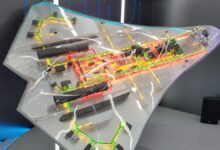The Rising Tide: Balochistan’s Struggle for Identity and Autonomy
Unrest Grows as Protesters Assert Baloch Ownership of Gwadar
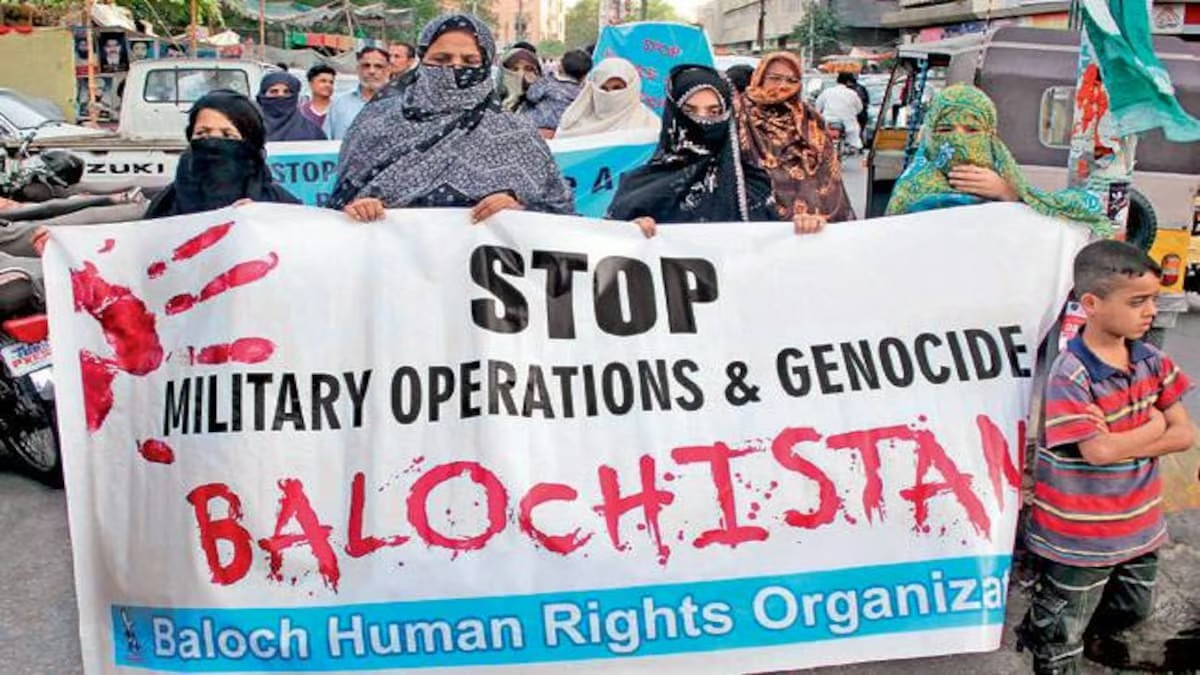
Balochistan is Pakistan’s largest province and is also the most neglected province in terms of development. It has a rich history marked by tribal traditions and resistance to external control. Until 1948, Balochistan was an independent state under the leadership of Khan of Kalat, Mir Ahmed Yar Khan. The partition of India and Pakistan in 1947 wrote a new chapter for Balochistan’s future.
In 1947, as the British Indian Empire dissolved and the independent states of India and Pakistan emerged, Balochistan faced a crucial decision regarding its political future. Initially, Mir Ahmed Yar Khan, the Khan of Kalat, sought to maintain Balochistan’s independence. However, in March 1948, under pressure from the newly formed Pakistani state, Balochistan acceded to Pakistan. The terms of this accession have since been contested by many Baloch leaders, who argue that the process was coerced and lacked genuine consent from the local population.
The post-accession period saw Balochistan gradually integrate into Pakistan, but the promises made to the Baloch people, particularly regarding their autonomy and control over natural resources, were largely unmet. This set the stage for ongoing discontent and conflict in the region.
Rise of Resurgence Balochistan
In recent decades, Baloch nationalism has experienced a notable resurgence. Multiple factors have contributed to this revival, including economic marginalisation, alleged human rights abuses, and a growing perception of Balochistan as a colony within Pakistan.
Economic Marginalisation: Balochistan is rich in natural resources, including vast reserves of natural gas, minerals, and oil. Despite these riches, the local population has seen minimal benefits. The exploitation of these resources by the Pakistani state and multinational corporations has exacerbated feelings of disenfranchisement among the Baloch people. They argue that the economic benefits of their resources are concentrated elsewhere, while Balochistan remains underdeveloped and impoverished.
Human Rights Abuses: Reports of human rights violations in Balochistan have fueled the nationalist sentiment. Allegations of enforced disappearances, extrajudicial killings, and military operations targeting civilian areas have become commonplace. The Pakistani military’s counterinsurgency operations, often conducted with little transparency, have further inflamed tensions.
Perception of Colonial Exploitation: Many Baloch activists view their region as being treated as a colony, with its resources extracted without regard for the local population’s welfare. This sentiment has galvanised the nationalist movement, as Baloch leaders demand greater autonomy and control over their resources.
A New Face of Balochistan’s Resistance
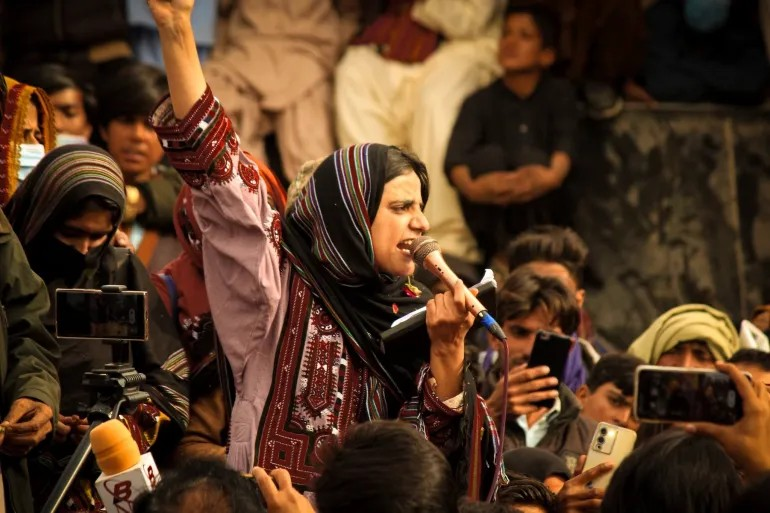
Amid the rising tide of Baloch resistance, Mahrang Baloch has emerged as a key figure in the fight for Balochistan’s rights. Her activism deeply roots itself in the historical grievances of the Baloch people, including economic marginalization and human rights abuses. She embodies the broader resistance against the Pakistani government’s policies, with her leadership symbolising the Baloch quest for autonomy and justice. Mahrang Baloch’s efforts highlight both the personal and collective struggle against systemic oppression and marginalisation. The Pakistani government’s response to her activism has been severe, with reports indicating targeted crackdowns against her and other prominent leaders. The increased militarization and state-sponsored repression in Balochistan have made the efforts of leaders like Mahrang Baloch extremely hazardous.
Recent Trends of the ongoing conflict in Balochistan
Gwadar Port, strategically situated on the Arabian Sea, holds immense significance for both Pakistan and China. As a linchpin of the China-Pakistan Economic Corridor (CPEC), the port is crucial for their economic and strategic interests. However, the recent Pakistani government proposal to convert Gwadar Port into a military zone has ignited widespread protest throughout Balochistan.
This move is perceived as a tactic to consolidate government control over the region and exploit its resources more efficiently. The Baloch population, particularly affected by this decision, has mobilised in large numbers to express their opposition. They contend that militarising Gwadar Port will exacerbate existing tensions and lead to a heightened military presence in an already volatile region. Locals and activists advocate for the port’s development to benefit the local community rather than serve as a tool for military dominance.
Protests have erupted across various regions of Balochistan, with Gwadar being a focal point. Baloch nationalist groups and residents have taken to the streets to assert their ownership of Gwadar and reject the militarization plan. A larger number of Baloch people are marching towards Gwadar Port, hoping to garner international media attention and support for their cause.
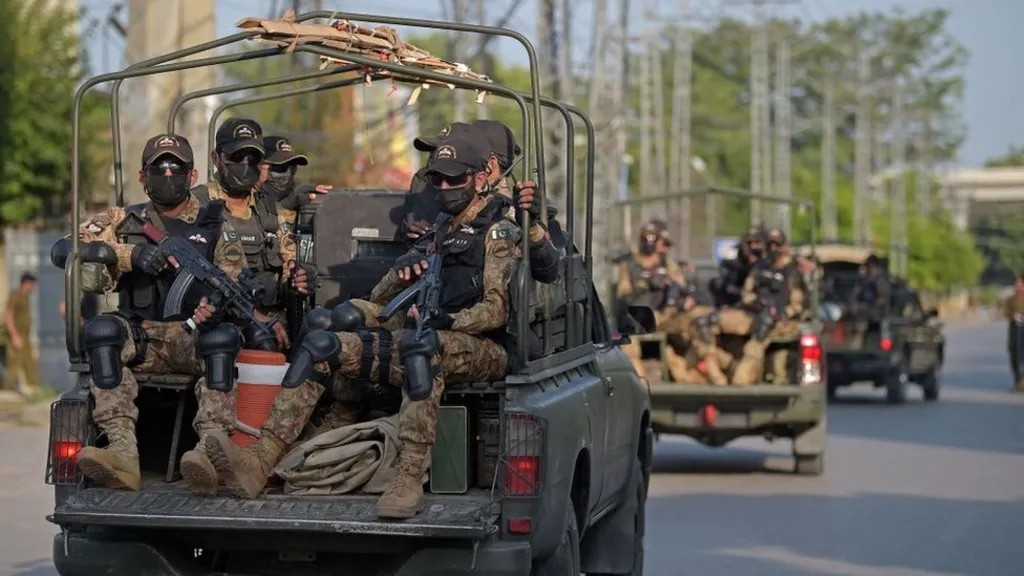
The widespread condemnation has greeted the Pakistani government’s response to these protests. Reports indicate the deployment of the Pakistani military to quell the demonstrations, raising serious human rights concerns. Allegations of excessive force and live firing on peaceful protesters, and violations of protesters’ rights have surfaced, coupled with a crackdown on dissent and suppression of civil liberties. This heavy-handed approach has exacerbated the dire humanitarian situation in the region.
Conclusion
The unrest in Gwadar marks a pivotal moment in the ongoing conflict in Balochistan. The widespread protests against the proposed militarization of Gwadar Port highlight profound and long-standing grievances related to resource management, economic marginalisation, and political exclusion. These demonstrations arise from deep-seated concerns about the management and distribution of the region’s wealth, reflecting broader dissatisfaction with the central government’s handling of Balochistan’s issues.
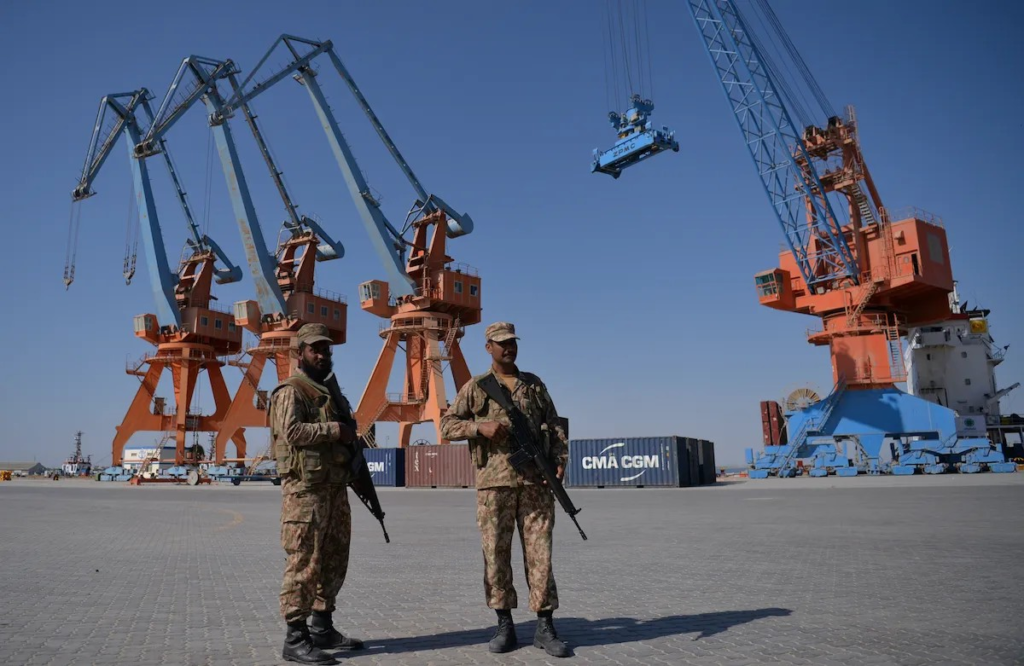
Addressing these complex problems requires a multifaceted strategy that prioritises open dialogue, respect for human rights, and fair development practices. It becomes crucial to engage in meaningful discussions that address the Baloch people’s demands and grievances, ensuring that their voices are heard and their rights are protected.
The situation in Gwadar, alongside the rising prominence of leaders like Mahrang Baloch, highlights the broader, systemic challenges that Balochistan faces. Mahrang Baloch’s leadership, emblematic of the region’s struggle for justice and autonomy, brings attention to the urgent need for a comprehensive and equitable resolution to the region’s issues. Her activism not only underscores the ongoing struggles but also serves as a beacon for future generations of Baloch leaders and activists. As the situation continues to evolve, the legacy of Mahrang Baloch’s efforts will likely remain a powerful source of inspiration for those advocating for a fair and just resolution to Balochistan’s enduring conflicts




